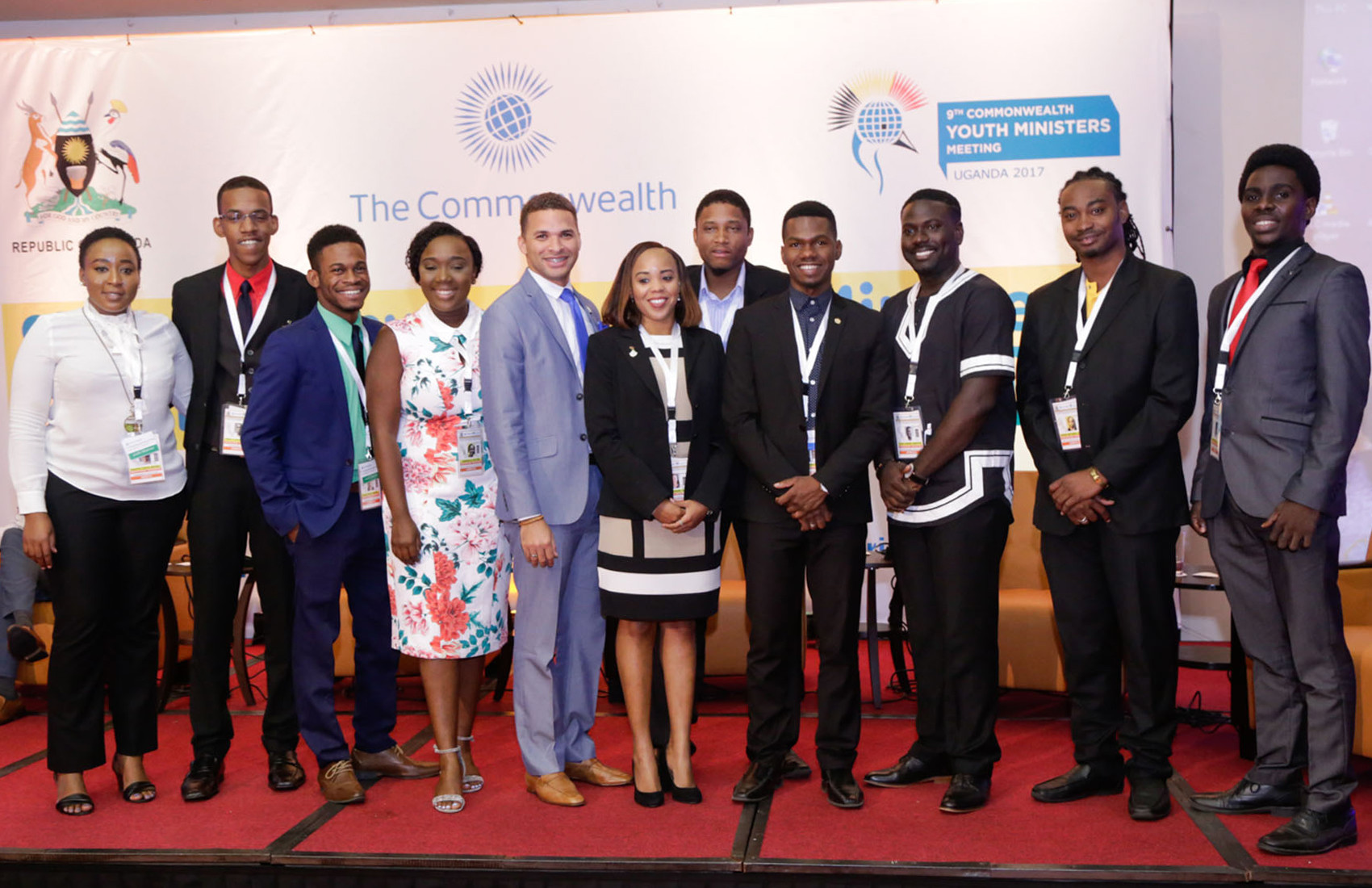Angelique Pouponneau, from the Seychelles, is the Vice-chairperson for Inclusion and Engagement of the Commonwealth Youth Council (CYC). As such, she is keen to solve a knotty problem: how to finance youth development. That was the theme of our 2017 Youth Leaders Forum in Kampala, Uganda – an important event, as it was an opportunity to influence discussions in the 9th Commonwealth Youth Ministers Meeting (9CYMM) that followed.

In the run-up to the Youth Leaders Forum, Angelique called for a public–private partnership. Government, she said, could work with the private sector to mobilise resources and finance youth development.
As it turned out, many delegates shared her view. They also agreed on what was needed to plug a deficit in public spending on young people’s development – new and innovative forms of financing including the promotion of social entrepreneurship.
That was the thinking of more than 150 young people – from Africa, Asia, the Caribbean and Americas, Europe and the Pacific – at the five-day forum. It was part of the CYMM in Kampala, organised by the CYC and Uganda’s National Youth Council, in conjunction with the Commonwealth Secretariat and the Government of Uganda.
In a joint statement, the youth leaders identified a “critical need” to diversify sources of funding for youth development, including through public-private partnerships, promoting social enterprises and seeking out philanthropic donors.
Watch: Highlights of the Youth Leaders Forum at the Youth Ministers Meeting, Kampala, Uganda, July/August 2017
A new type of bank
To increase access to finance and to support youth-led social enterprises, delegates proposed a Commonwealth Youth Development Bank. The bank would provide loans to young entrepreneurs. In addition, the delegates recommended strengthening national regulations on corporate social responsibility to ensure that a percentage of company profits go to youth schemes.
The professionalisation of youth work
Among the recommendations is a call for governments to support the professionalisation of youth workers and to provide adequate funding for national youth councils.
Kishva Ambigapathy, Chair of the CYC, said: “It has been an exciting few days, meeting with fellow youth leaders from across the Commonwealth to have an intellectual discourse on advancing the agenda of resourcing and financing youth development. We have identified the challenges, and now we are devising solutions. We hope governments acknowledge that to realise the solutions we will need partnerships with all stakeholders – the private sector, philanthropy, civil society and young people.”
Agreement from stakeholders
Alongside the Youth Leaders Forum there was also a stakeholders forum which brought together 130 youth workers, youth activists, and representatives of civil society, academia, development agencies and donors. It was organised by the Commonwealth Alliance of Youth Worker Associations and the Uganda Parliamentary Forum on Youth Affairs.
In their own communiqué, the stakeholders recommend that governments pursue “a policy environment which is responsive, flexible and enabling to assist in empowering young people to actively engage society’s development and enhancement in a meaningful way”.
Public-private partnerships must be pursued
The stakeholders followed the lead of the youth leaders, saying that other “sources or methods of financing be made an urgent priority”. They, too, recommended that public-private partnerships be pursued to fund youth development, and urged greater support for youth-led community projects and businesses.
We will need partnerships with all stakeholders – the private sector, philanthropy, civil society and young people.
— Kishva Ambigapathy, Chair of the CYC
An extraordinary opportunity: the Sustainable Development Goals
Since the last CYMM in Papua New Guinea in 2013, world leaders at a United Nations summit agreed on the Sustainable Development Goals (SDGs). This set of 17 global targets includes poverty reduction, health, education, gender equality and climate action. In their communiqué, the youth leaders stated that the SDGs represent “an extraordinary opportunity for young people to shape a future they believe in and can truly call theirs”.
Both stakeholders and youth leaders raised concerns about inequality and discrimination and the needs of marginalised and disenfranchised groups. They also said that it was imperative for government departments to collect and analyse data to develop evidence-based youth policies.
The communiqués from the Youth Leaders Forum and the Stakeholders Forum were presented to youth ministers on the final day of the 9CYMM.
After the latter meeting, the ministers issued their own communiqué. In it they “affirmed the importance of public-private partnerships and innovative financing mechanisms in facilitating youth development”. That must have been gratifying for Angelique and her fellow youth leaders to see.
Youth ministers affirmed the importance of public-private partnerships and innovative financing mechanisms in facilitating youth development
More progress with our youth networks in 2015-2017
The CYC, which helped organise the forum described above, is just one of ten thriving youth networks that the Secretariat supported throughout the Commonwealth in 2015-2017.
These networks include over 948 youth organisations and 1,100 young leaders. Over the two years, they participated effectively in national and regional efforts to achieve the SDGs, and they worked to bring the youth perspective into relevant international development and decision-making.
The youth networks also participated in ministerial meetings and international forums.
Highlights included the launch of the pilot Commonwealth Young Women’s Mentorship Scheme. The scheme aims to empower future young women leaders. Working in partnership to deliver it are the CYC, the Commonwealth Youth Gender and Equality Network and rotary groups in Canada and the Caribbean.
Our Youth Peace Ambassadors Network was also active. In honour of the Commonwealth theme “A peace-building Commonwealth” it launched 16 national chapters. In addition, it conducted advocacy training and peace-building workshops in these countries across the Commonwealth.
In the previous financial year, 2015/16, three new networks were established:
- the Commonwealth Youth Health Network, endorsed by health ministers
- the Commonwealth Youth Human Rights and Democracy Network
- the Commonwealth Youth Peace Ambassadors Network, which the Secretariat relaunched as part of a youth peace-building initiative supported by the UK Foreign and Commonwealth Office.
There were two regional youth ministers meetings (Asia, Pacific).
In addition, the 10th Commonwealth Youth Forum took place at CHOGM 2015, co-convened with the CYC. Over 200 young people from 48 countries attended.
A global pattern of cuts in youth development has led to challenges in our capacity to meet members’ increasing requests for support. The Secretariat has had some success in mitigating the impact of funding cuts through joint programming and supporting youth networks to raise funds.


